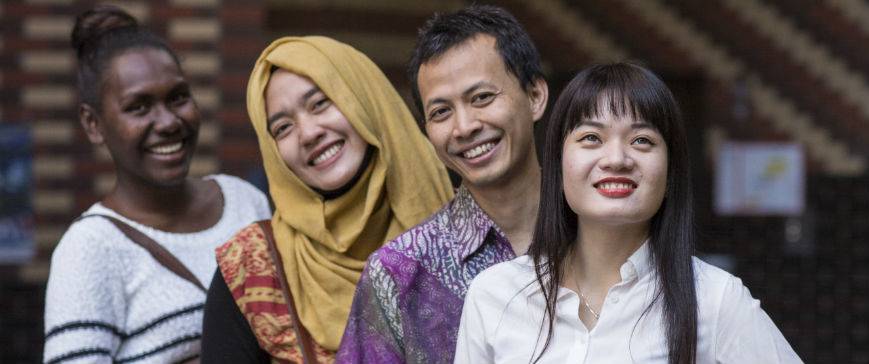
Tracing Australia’s contribution to international development
Research 8 Oct 2018 4 minute readFor over 60 years the Australian Government has invested in generations of global leaders, providing opportunities for study, research and professional development in Australia. ACER is evaluating the long-term outcomes of this investment.
The Australian Department of Foreign Affairs and Trade (DFAT) engaged the Australian Council for Educational Research (ACER) to evaluate the development contributions and public and economic outcomes of Australia’s investment in Australia Awards scholarships and fellowships. ACER conducts this evaluation through the Australia Awards Global Tracer Facility (the Facility).
The Facility’s Year 2 results have just been released, providing an interesting insight into the impact of Australia Awards on alumni who studied in Australia from 2006 to 2010.
From June 2017 to July 2018, the Facility undertook five Case Studies, interviewing alumni from Vanuatu (in the field of law and justice), Mongolia (finance), Solomon Islands (health), Indonesia (education) and China (environment and public health).
ACER Research Director (Tertiary Education) and Facility Manager, Dr Daniel Edwards said, ‘The Facility research is a world first and reveals that the majority of alumni are now in senior leadership positions and are making positive contributions to sustainable development within their countries.’
‘Some clear themes emerged from the research. Studying in Australia was transformational and allowed alumni to think critically and see the world differently.’
Alumni developed links to others in their fields and gained expertise they could share with colleagues on their return. They have also been successful in building capacity within their organisations and contributing to their countries’ development goals.
Supporting law and order in Vanuatu
According to Dr Edwards, Ni-Vanuatu alumni have made strong contributions to the legal and judicial sectors. These include contributing to achieving better governance, supporting the capacity development of colleagues, and developing specialist areas of knowledge and practice in policing and customs.
Strengthening Mongolia’s financial sector
Alumni featured in the Mongolian Case Study have been involved in the smooth transition to a market economy and have made strong contributions to the finance sector.
‘Alumni have been involved in the development of fiscal policy, strengthening macroeconomic systems, and financial risk assessment. In addition, alumni have supported capacity development of colleagues through formal and informal mentoring and sharing of expertise,’ Dr Edwards said.
Improving the health system in Solomon Islands
Solomon Islander alumni have made significant contributions to the development and improvement of health policy and practice.
‘Alumni described their experiences in Australia as transformational, enabling them to see the world differently and providing them with confidence and expertise to improve health outcomes on their return,’ Dr Edwards said.
Ten years on, the alumni are actively making a difference to maternal and child health, dental care, infectious disease control, professional development training, community engagement, and health education and policy in Solomon Islands.
Providing training and support to in-service teachers
The Indonesia Case Study featured alumni from the education sector, many of whom were involved in teacher training and professional development of in-service teachers. Alumni provided strong examples of using their experience in the Australian education system to model and improve teaching pedagogy and inclusive education environments.
Researchers found alumni were contributing to the achievement of partner-country development goals in their hometowns, with six out of the eight interviewed contributing either directly or indirectly to improving education in their home provinces. This included two alumni who have been actively involved in capacity building of teachers in Aceh which was devastated by the 2004 tsunami.
Integrating a broad range of skills in environment and public health
Dr Edwards points out that the China Case Study was unique as it focused on alumni who undertook Australian Leadership Awards (now known as Australia Awards fellowships) in the fields of environment and public health.
The alumni had strong ongoing connections with Australia through their host organisations, with many returning to undertake doctorates and conducting global research projects.
They developed a broad range of skills, which they have used in their work. These skills include integrated approaches to water management and environmental sustainability; multi-disciplinary approaches to public health; and broad skills such as communication, critical thinking and leadership.
Further information:
Read more about the Australia Awards Global Tracer Facility.
Read the full Case Studies.